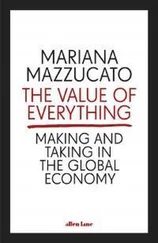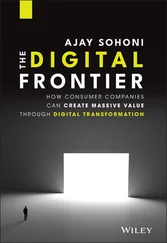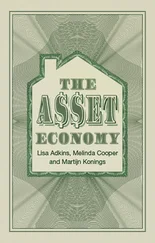For example, one of Google’s initial problems in profiting financially from its search engine was how to generate trust in its very different way of selling advertisements (Auletta 2011: 3–6). As already mentioned, Google runs automated auctions to allocate search words. From the advertiser’s point of view, this is about connecting their ad with the best search query or term on the best site, while for Google it is about balancing income with advertiser trust and ease of use. These interests are resolved in the specific auction practice in which the winner does not pay what they bid but only a small amount more than the second-placed bid. While this is usually less than Google might have earned, the process has the advantage of building long-term trust with advertisers. At the same time, the process removes the advertiser’s interest in bidding lower than they might otherwise due to worries about over-bidding (Levy 2011: 89–91). Here is a specific kind of practice, again automated through algorithms and networks, that mediates the search result into an advertising program that generates revenue for Google and, possibly, for the advertiser. But search had to come first: the value of Google had to be established by the practices of creating a functioning, free and attractive search engine, so that practices could then be generated connecting the value of search to the value of money.
The corporate logics of revenue and profit have to be implemented after the practices of search as value, but these logics also find that the practices of creating search can themselves be translated into and reused as practices of revenue and profit. In particular, the processes of personalisation can develop closely with those of profits derived from advertising, because in both the issue is one of using datasets to generate ways of grouping users together. The same clues that allow personalisation can be moulded to deliver targeted advertising. These Google practices consist of translating both advertiser trust and dollars through the prism of profiling users, similar to personalisation. This is not to say that personalisation and targeted advertising are exactly the same processes, only that they draw on the same idea that correlations and profiling can be generated from Google’s vast datasets of its users’ behaviour (Hillis et al. 2012). In this way, Google’s algorithmic and corporate logics intertwine.
Essential to Google’s practices is a set of algorithms that distributes ads, according to words won at auction, onto its own or other websites. It should be particularly noted that Google has access to recursions within its data, recursion being the process of creating infinite information by returning the results of an information process to itself: when the output serves as input to create a different output then information may increase exponentially and infinitely (Jordan 2015: 29–44). Here we catch sight of a corporate reason for the mass information storage and processing, because a core recursion involves using the information collected to refine searching and so to refine the delivery of advertisements. In this sense, Google’s advertising practices are essentially a recursion of some of their search practices, particularly personalisation, but with the information being delivered in the form of advertisements rather than as answers to search queries. While we know this, the nature and specificity of these practices are obfuscated as a trade secret, leading to the ‘Search Engine Optimisation’ industry, which seeks to find ways to improve clients’ ranking in search engine results by analysing and manipulating their secret algorithms (Havalais 2009).
The obfuscation of algorithms and networks will be a repeated issue when analysing digital economic practices, but it should not be over-emphasised. As demonstrated above, while we cannot follow the details, we can follow the nature of the practices that create search, partly because we know what users, in this case searchers or advertisers, are doing, and because we know the nature of what the company is doing. Closer work would have value, but in defining digital economic practices generally, or Google’s practices specifically, the level of detail that is available is more than adequate.
With this analysis of Google’s economic practices, we have thoroughly examined a leading example of digital economic practice in which the searcher, the advertiser, the advertising site and Google itself each have different practices that intersect to create the overall practice. At its core, we see that while the money comes from advertising, this revenue is dependent on prior search processes. Advertising is then second both temporally – the search engine has to first be established to attract users, whom the company can then use to attract advertisers – and existentially, in the sense that without a successful search engine advertising is irrelevant since no company will survive for very long. Once Google had learned how to read the community of the WWW and ally this to the data flow derived from its searchers, it could then make the profitable leap to advertising, while still offering its core ‘value’ of search as a free service. At Google, the addition of monetisation is materialised in new practices of analysing users, as well as in auctions, money transfers and bookkeeping. Fundamentally, Google’s digital economic practice is based on its ability to read a community and then pass that reading through recursions that both identify better search results and deliver targeted advertising.
Search as an Economic Practice
If Google is not the only search company, and not the only digital economy company, then is this understanding of its economic practices being dependent on and deriving their primary value from communities, groups or collectives specific to Google or to search companies? In relation to digital economic practices generally, subsequent chapters will examine cases other than search in order to both complicate and confirm how far Google is an exemplar of more general practices. But here it will be worth looking briefly at a number of other search engines.
Bing is the next in line for the most search queries in many parts of the world, with around 10 per cent of all search queries worldwide, though this varies according to region, from around 30 per cent in North America to 3 per cent in the Asia Pacific (Statista 2017). Bing is different to Google in a number of ways, though it retains the element of reading the World Wide Web, with somewhat different strategies for achieving a good read. Primarily, Bing aims to be a semantic search engine by building rankings related to keywords. Once a complex set of rankings is created it is supplemented with a measurement of links to deliver an answer to a query. While not a great deal of detail is available, it seems Bing’s keyword table is generated by looking at the nature of websites and how many links there are to their semantic content, creating a hierarchy based on a particular kind of web linking. Indicative of this is Bing’s advice to websites about how to make themselves more visible to its search, which includes providing clear and discrete keywords that are strongly related to the site’s content (Moffit 2014). Though implemented differently, Bing maintains a strategy of reading the WWW. Once read through keywords the semantic content is supplemented with further backlink searches, not entirely unlike Google’s processes, to generate answers to search queries. Bing notably uses this system to provide search that takes on non-text content, attempting to provide effective search results for images, video, sound and so on.
Bing’s monetisation broadly follows the targeted advertising model. It uses its search abilities to feed advertisements related to the content of a search. Again, while advertising appears to be the primary economic practice, it is so only in terms of generating income, with the full economic practice relying on the reading of the WWW and its various commercial and community networks. Microsoft’s early 2018 financial report established that Bing revenue rose by 15 per cent in 2017 to a total of $1.8 billion (Javed 2018). While a significant income, available figures make it hard to judge if Bing is profitable or a loss-leader that Microsoft is subsidising out of the profits made from commodities like its operating system and Office software.
Читать дальше












